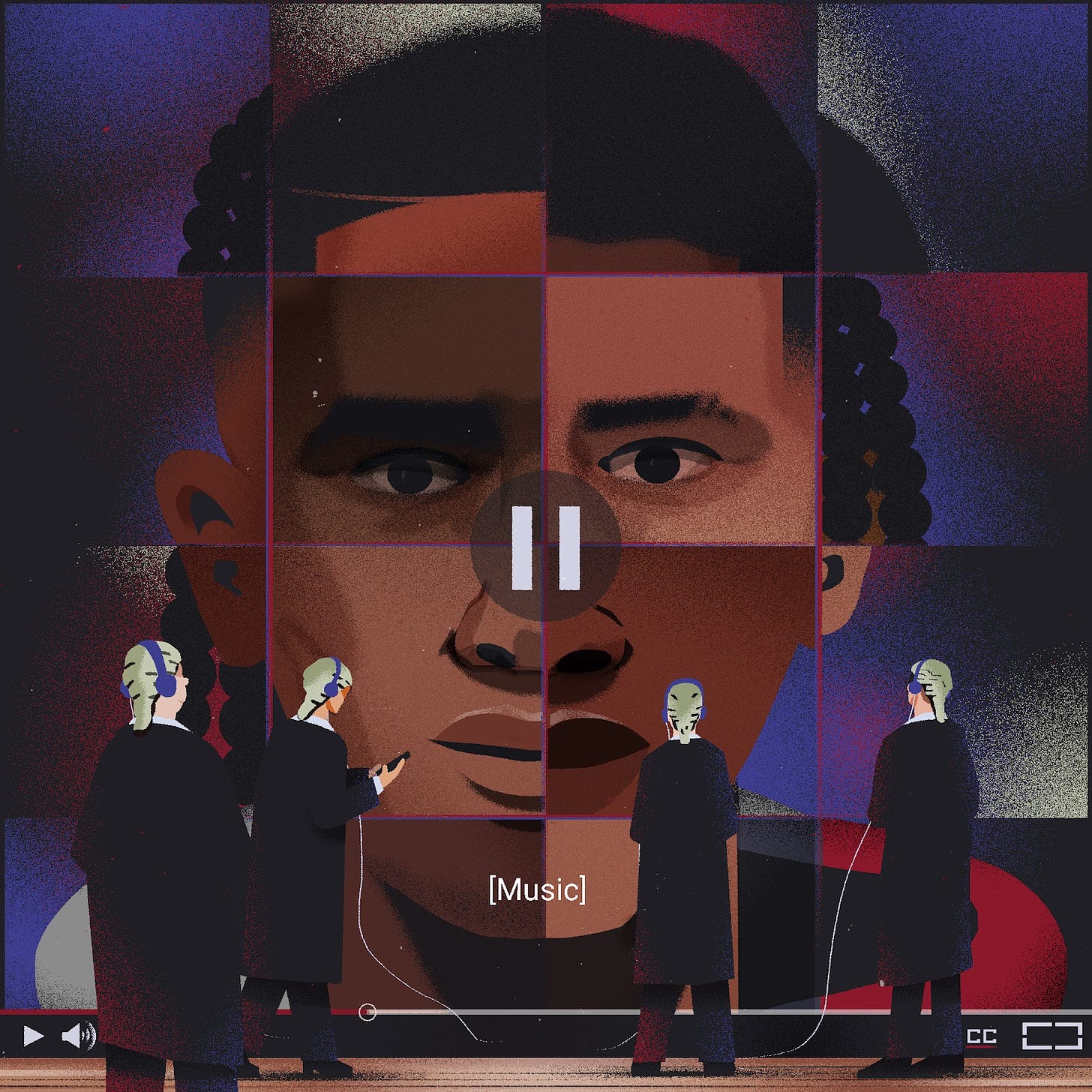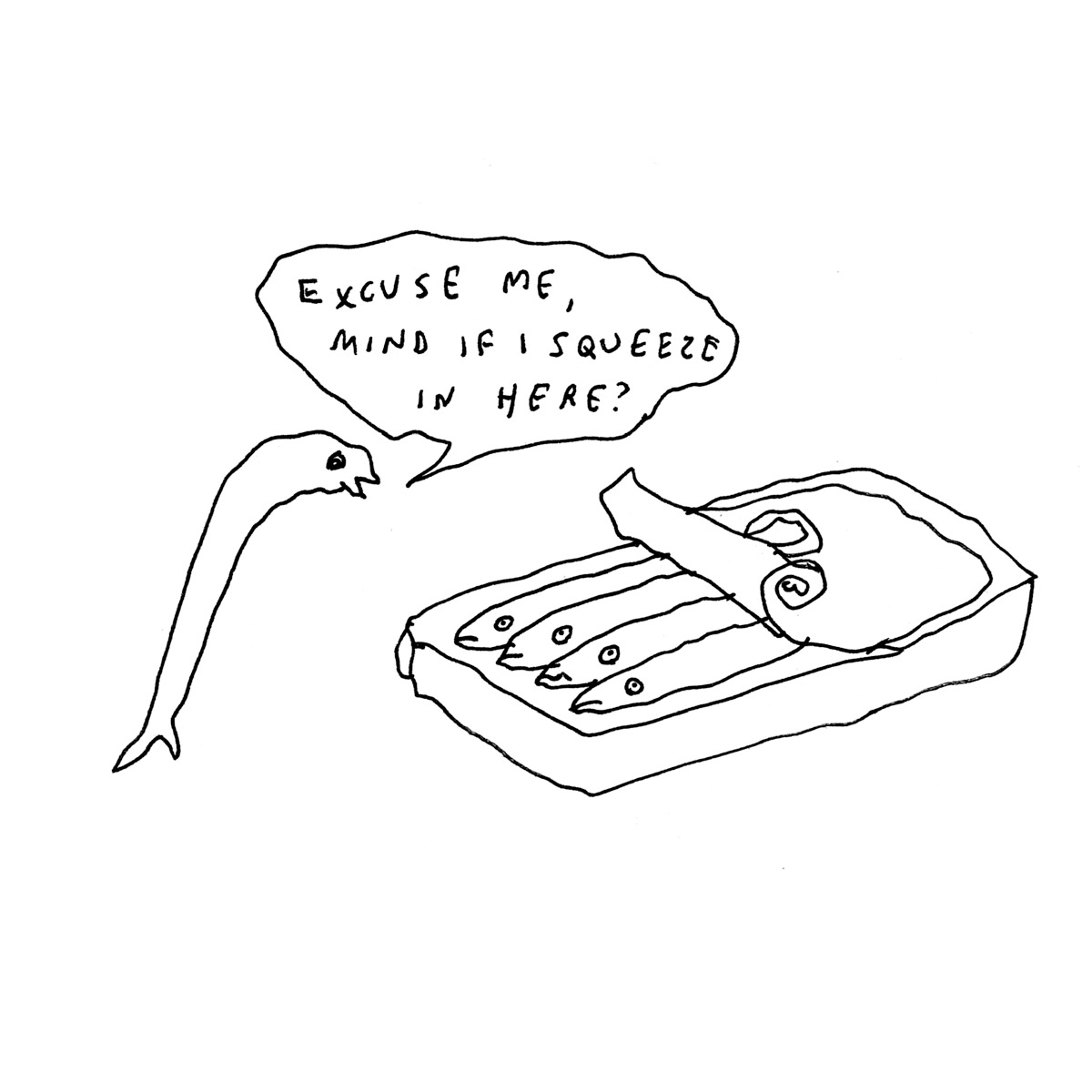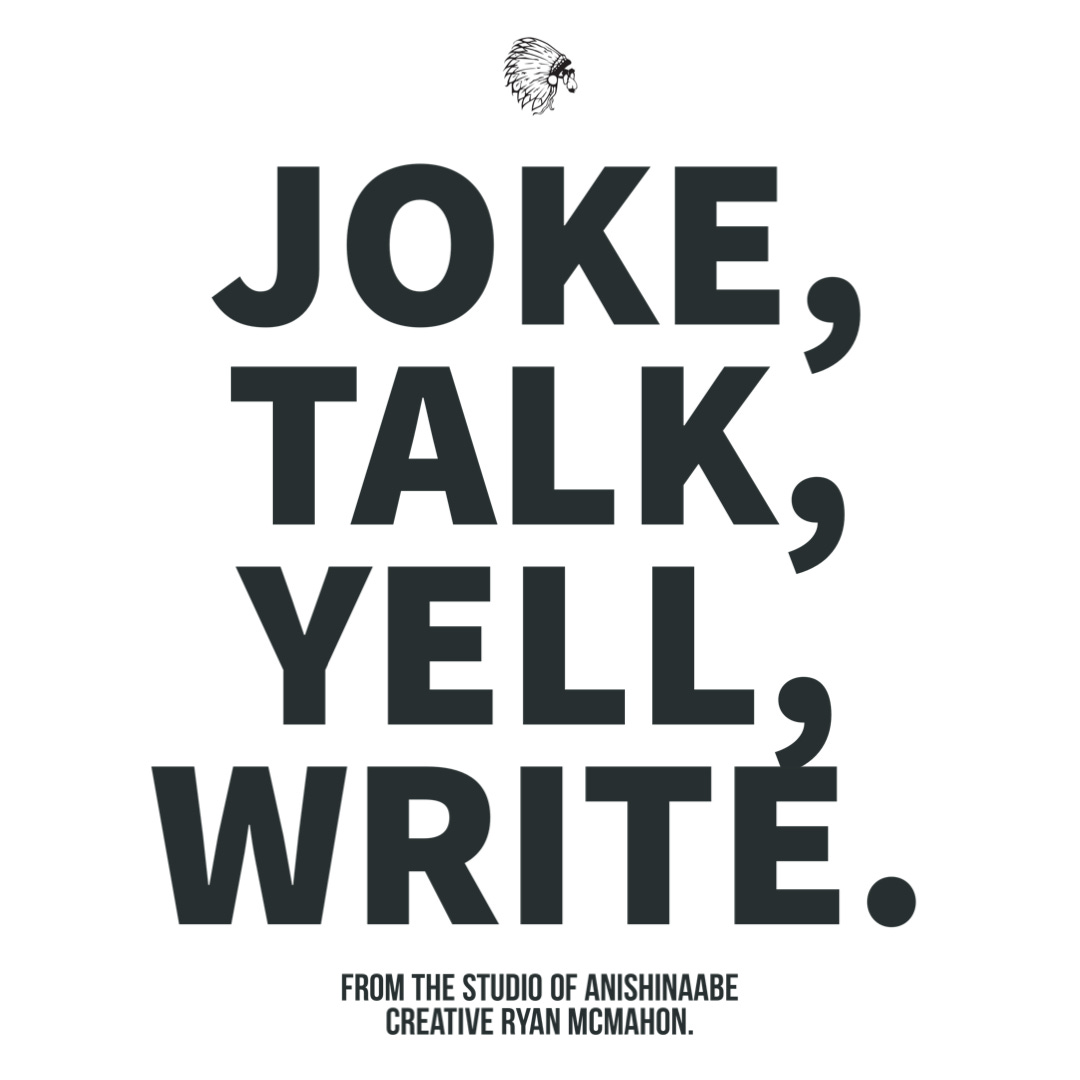Welcome to another digest of reads from across Substack.
If 2023 got off to a gloomy start for some writers, we have a fresh look on intention-setting, relationships, and keeping sane while traveling for 328 days in a space capsule, all from our writers this week—
not to mention a world exclusive to get us started from a new and exciting Substack writer, Ciaran Thapar.
We hope you enjoy it!
LAW
Unsilent witness
Music online and on social media can be mined for evidence in criminal trials. Over two years, writer and youth worker Ciaran Thapar is one of the few people challenging this
—
inThe officer had self-identified as an expert on gangs—which they implied covered music knowledge too—based on the fact they’d spent years policing the part of London in which the alleged crimes took place and where the co-defendants had grown up. Is it possible to be an objective expert about groups of young people if you only interact with them in stop-and-searches? Your guess is as good as mine.
I was tasked with providing my own history and interpretation of UK drill music; commenting on whether making the music or appearing in its videos equated to gang membership and giving my opinion on whether the officers had demonstrated sufficient expertise about local music culture and gangs.
I spent days poring over the case files and writing my response. Following its submission, the evidence was withdrawn by the prosecution, meaning that it would not feature in the trial. The young man would be tried as a person, not an assumed gang member. His music would not send him to prison—not this time, anyway.
LOVE
Relationship mistakes smart people make
Are you always organizing your partner’s social life? Or letting yourself be persuaded into sex? Andrew G. Marshall is a marital therapist sharing the top mistakes couples are making
—
in“How could I have been so blind?” or “Why did nobody tell me?” These are just two of the most common reactions from people who thought they were doing the best for their marriage but discovered they’d actually been undermining their own efforts.
On the surface, these strategies seem sensible, but thirty-plus years of helping people understand relationships has taught me that they could easily be the biggest mistake of your life.
Organising their social life
Why it seems a good idea: By being guardian of your partner’s diary, you get the social life YOU want. Not only do you weed out their friends who are boring or a bad influence, but you enjoy time with “couple friends” (who perhaps, if you’re really honest, are actually your friends).
Why it’s really damaging: Having to check if they can go for a drink or game of tennis with their mates will leave your partner feeling controlled, resentful, and isolated. The more this becomes a pattern, the weaker your connection will become.
SCIENCE
11 months in a tin can
Four lessons astronaut and surfer Christina Koch learned from 328 days in a capsule
—
inChristina was in space for a record-breaking 328 days, an experience that was as much a mental as it was a physical challenge.
To manage this challenge, she utilised the Expeditionary Behaviour training she received from NASA and also came up with her own coping mechanisms to deal with what she calls ‘sensory underload’—the lack of new stimuli that is a disconcerting feature of spaceflight.
When things got tough, she focused on the positive experiences she’d miss, rather than fixating on her mission end date. It’s a technique she applied to her time in Antarctica, her time aboard the ISS, and her time in lockdown.
HUMOR
January? I’ll take Goblin Mode, thanks
Why does the new year start in January? Novelist Liv Stratman finds the tipping point in her yoga class and solace in Schopenhauer
—
inSkandasana, a yoga pose that is essentially a wide-legged squat over one leg, is difficult to get into and out of, especially for those who aren’t very young or determined. About midway through the class, when the general mood in the room was already unhappy, Alexis shouted: “Skandasana! One, two, CHANGE, skandasana on the other side! One, two, CHANGE, OTHER SIDE…” This went on, delivered with the rapid-fire pace and cadence of an intense Pilates or HIIT workout, which none of us had signed up to do. A few of my classmates had retreated into child’s pose, a few held skandasana on one leg for a longer, more appropriate beat, and a few were still attempting to keep up with Alexis, either out of good sportsmanship, ignorance of what the class typically entailed, or as some undertaking of self-punishment. I didn’t do any of this. I stood in the middle of my mat, glaring, saying, “No,” each time Alexis told us to switch positions. This made the person next to me laugh, and soon several others were laughing too, and Alexis—trying to pretend a mutiny wasn’t brewing in the back right corner of the studio, told everyone to get into downward dog, which I did, and held, as she continued to holler out poses without taking the time to tell us toward where we should point our hips.
There was no shavasana—corpse pose—at the end, the aforementioned conclusion of class during which the lights go off and one lies on their back and lets the mind go blank. I could’ve probably overlooked the rest if she’d just let me play dead afterward.
WORK
The death of hybrid work is greatly exaggerated
Are too many execs jumping the gun by sending employees back into the office?
—
inEvery December, we are routinely treated to lots of end-of-year pieces that reflect on the year gone by and project forward what’s to come.
Several predictions for 2023 that covered work suggested that hybrid working was increasingly being consigned to a bin marked ‘Tried It, Failed.’ We were told that bosses were increasingly seeing the light and demanding a Return to the Office. The Telegraph reported that one in seven firms were planning to force more time in the office in 2023.
I was myself commissioned to write a piece for a broadsheet newspaper, a task that became an eye-opening assignment for me. Once I’d submitted my copy (a balanced perspective looking at the downsides as well as the advantages of new ways of working), I was told that the newspaper’s philosophy was at odds with what I was saying. I didn’t change any of my opinions, but the final piece ended up more focussed on the disadvantages than I would have liked.
Be in no doubt, traditionally minded leaders are trying to assert that flexible working is a fad soon to go the way of QR-enabled vaccination certificates. I’ve seen lots of posts on LinkedIn saying that the new order of work will be four days in the office and Fridays at home. Why? Because hybrid working isn’t delivering what it promised, they claim.
LISTEN
The invisible men
Jessica Reed Kraus speaks with about Epstein’s “invisible men” and what a controversial new lawsuit against JP Morgan might be hiding
—
inAs some may recall, Vicky Ward was one of the first reporters I befriended during the Ghislaine Maxwell trial last year. Throughout that strenuous monthlong stretch, my first time inside a federal courthouse covering a high-profile trial, I always looked forward to early-morning cafeteria conversations with Vicky, in part because she had spent over 20 years tracking this case and was chock-full of unique insight, solid theories, and significant footnotes to just about every angle of this wildly sordid and complicated tale.
Our trial take, even in those early weeks, was identical. We both viewed it as a narrowly carved version, designed to show proof of justice with the conviction of Ghislaine Maxwell, while her clients existed in shadowy reference—“cameo appearances,” Vicky calls them—present, but in heavily redacted form.
In the months following Maxwell’s conviction, I have gone back to reexamine many of Vicky’s older articles, learning new things with each reading, so I was thrilled to see that she jumped on this latest ordeal, with a piece posted last week about the firing of Denise George (announced days after her complaint against JP Morgan, in connection to Epstein, was filed).
In this conversation, Vicky explains why this latest twist is so telling. How these men have remained anonymous for two decades, and why we may never uncover who they are or what they are guilty of when big-money payoffs can still successfully ensure continued silence.
BEAUTY
There is no “choice” in wellness culture
Industries built on psychosocial manipulation sell us our own insecurities as empowerment choices, says Charlie Squire
—
inIt is taboo to critique the concepts of makeup, cosmetic surgery, anti-aging, because it is received as “shaming” others’ “choices.” Why does there have to be shame? Critiques of these systems are not shaming others’ choices at all—they’re questioning the very idea of choice and of desire itself. An ad for an anti-aging product featuring a girl who looks no older than 16 advertises itself as the feminist alternative to Botox because it is “non-invasive.” We see through our aesthetic Overton window, and this is the exact language and rhetoric that draws the curtains further and further closed. When the idea of aging naturally is fully removed from the conversation, it becomes self-care to prevent wrinkles, so long as you do it with these products marked with the correct trademarks.
WEEKLY CARTOON
—
inRecently launched
Substackers in the press
writer . Writer is interviewed in The Information. While , , , and more are mentioned in this piece in The News Statesman.Substack Reads is a weekly roundup of writing, ideas, art, and audio from the world of Substack. Posts are recommended by staff and readers, and curated and edited from Substack’s U.K. outpost by Hannah Ray.
Got a Substack post to recommend? Tell us about it in the comments.
























If Substack ever features Matt Likes Coffee on here they’re going to be hard pressed to find a cohesive narrative. Because it’s not about coffee, but not not about coffee.
Thanks so much for featuring my story!